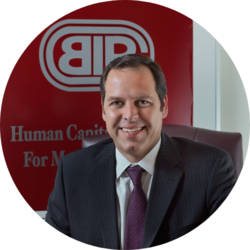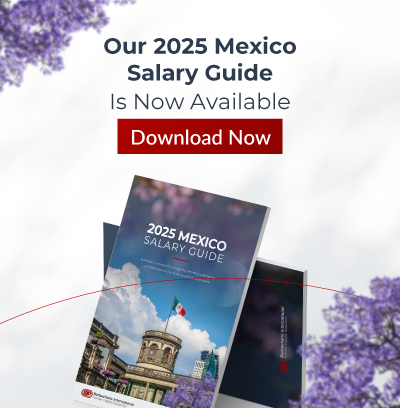
Career transitions often start with hesitation. You know you’ve built years of valuable experience, yet when you look at job descriptions in a new industry or function, your past achievements suddenly feel like a mismatch. That’s when many professionals start doubting whether their background still counts.
But the truth is, the value of your experience doesn’t disappear; it just needs translation. Transferable skills are the bridge between where you’ve been and where you want to go. When you learn to identify them and communicate them effectively, you stop sounding like a job title and start sounding like a problem solver.
Why Transferable Skills Matter More Than Job Titles
Many executives underestimate how much of what they do is transferable. Strategic thinking, leading teams through change, building trust with stakeholders, and managing performance; these are capabilities that transcend industries.
A Harvard Business Review article points out that focusing too heavily on job titles can cause employers to overlook strong candidates whose skills align more closely with what the organization truly needs. In today’s market, adaptability and problem-solving matter more than matching titles word for word.
When you focus too much on titles or technical similarities, you risk underselling what makes you valuable. The key is to reframe your story around how you think, lead, and deliver results, rather than the specific environment where those skills were applied.
How to Identify What Truly Transfers
Start by reviewing your achievements through a strategic lens. For each role you’ve held, ask yourself:
- What kind of challenges did I solve?
- What outcomes did I drive that could matter in another industry?
- Which of my abilities are universal (like leadership, influence, negotiation, or decision-making)
For example, an operations director in manufacturing might not realize that their expertise in process optimization, cost control, and cross-functional collaboration directly translates to industries like logistics, hospitality, healthcare, or technology. The context changes, but the impact remains the same.
Transferable skills are rarely about tasks, they’re about outcomes. If you’ve led teams through transformation, improved efficiency, or built a culture of accountability, those are signals of readiness for higher or broader responsibilities.
The Secret Is in Framing
Once you’ve identified your transferable skills, the next step is learning how to talk about them in a way that feels relevant and credible.
That means choosing a language that connects your past to your future. Instead of saying, “I managed production teams across three plants,” you could say, “I led multi-site teams to improve operational performance and streamline processes; experience I can apply to scaling service operations or project delivery in new sectors.”
This shift turns your story from industry-specific to results-oriented. It helps recruiters and decision makers visualize you in a new context without having to make that leap themselves.
When you tailor your message to the priorities of the target role like efficiency, innovation, growth, you show that you understand their world, even if you’ve worked in a different one.
Confidence Shapes Credibility
How you speak about your transferable skills is just as important as what you say. Many professionals entering a career transition unconsciously downplay their abilities, using phrases like “I think this might be relevant” or “I hope this experience applies.” Those small hesitations can make even strong skills sound uncertain.
Confidence is not about overstating your experience; it’s about showing ownership. When you speak from a place of clarity, knowing exactly how your strengths connect to the new role, you project trustworthiness. Employers notice that.
The best candidates present transferable skills as natural extensions of their professional DNA, not as exceptions. They focus on contribution, not compensation for lack of experience. That mindset shift makes a lasting impression.
Building the Bridge With Credibility
The strongest career transitions are built on evidence, not enthusiasm. Employers want to see proof that your success wasn’t circumstantial, it was driven by how you think and lead.
Consider the story of a manufacturing operations leader we recently advised who wanted to move into the tech industry. At first, he focused on production metrics and cost savings. Numbers that made sense in his previous world but didn’t resonate with technology recruiters.
We helped him reframe his achievements around leadership and innovation. He highlighted how he led automation initiatives, integrated new digital systems, and managed global teams through transformation. By positioning himself as a leader in operational innovation rather than production management, he was soon viewed as a strong candidate for a global process improvement role at a software company.
Within months, he made the transition successfully. The experience confirmed what we often see in cross-industry moves: when professionals lead with clarity, context, and confidence, doors open that once seemed out of reach.
Your Experience Is a Portfolio, Not a Prison
Every job leaves a mark. You pick up lessons about people, pressure, and what it takes to make things work. Some of those lessons come from wins, others from mistakes but together, they tell the story of how you’ve grown and what you can bring to the table.
Making a change in your career can feel uncertain. You start questioning what still matters or whether your experience will translate. But the truth is, everything you’ve done adds value if you learn how to tell the story behind it. When you talk about your skills with honesty and confidence, people listen. They see the person behind the résumé.
At Barbachano International, we remind professionals that you’re never really starting over. You’re building on everything you’ve learned and just finding new ways for it to matter.

By Fernando Ortiz-Barbachano
President & CEO of Barbachano International
Barbachano International (BIP) is the premier executive search and leadership advisory firm in the Americas with a focus on diversity & multicultural target markets. Since 1992, BIP and its affiliates have impacted the profitability of over 50% of Fortune 500 Companies. BIP has been recognized by Forbes as Americas’ Best Executive Search Firms and currently ranks #8 and #3 on the West Coast.


